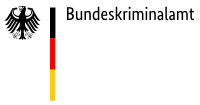The Forensic Science Institute of the BKA performs a special function among the forensic science institutions in Germany, the framework of which is prescribed by the "BKA Law". The KTI assumes responsibility for the forensic sciences as co-ordinator, developer, mediator, basic and advanced trainer, providers of equipment to forensic science laboratories worldwide, technical adviser and pioneer of new methods, for example in quality assurance.

Our closest partners and, at the same time, clients are the forensic science institutions of the German federal states as well as departments of the Bundeskriminalamt and the Federal Ministry of the Interior, for which the KTI renders a wide variety of services. In many cases, the actual client behind the departments of the BKA is the Attorney General at the Federal Court of Justice, or the public prosecutor’s office responsible. Occasionally, the courts also commission official experts from the KTI directly to conduct forensic science investigations. Via the central firearm and handwriting recognition service, amongst other things, the KTI is in direct contact with local police authorities, which together with departments of the Federal Police, provide for a high order volume.
Some important partners active in the forensic field, such as the institutes of legal medicine or certain departments of the Customs, are located in universities and/or subordinate divisions of the Federal Ministry of Finance. Depending upon the nature of the enquiry, further co-operation partners have been won, such as universities, industry or research institutes, be it through case work or co-operation on research and development projects.
The forensic responsibility of the KTI does not end with the provision of expert opinions, or a support service for police authorities during investigative proceedings, but by the same token encompasses the basic and advanced training of experts, judges, public prosecutors, defence counsels and executive police personnel. Our clients are therefore also the providers of training for authorised experts, such as the BKA training centre, police colleges, the German Police University, academies for judges, and associations of defence counsels. Furthermore, many professional contacts exist with different ministries, such as the Federal Foreign Office (AA), the Federal Ministry of Defence (BMVg), the Federal Ministry of Economics and Technology (BMWi) and subordinate authorities like the National Metrology Institute (PTB), the Federal Institute for Materials Research and Testing (BAM), the Federal Office for Information Security (BSI), the Federal Office of Civil Protection and Disaster Assistance (BBK), public authorities responsible for aliens, and military scientific institutes.
The Forensic Science Institute has always maintained good contacts with national and international forensic societies and networks. At a national level, regulation of communication between forensic science institutions is guaranteed by the subordinate committee structure of the CID Working Group (AG Kripo). In particular fields of forensic science the CID Working Group has appointed committees which administrate nationally the functions of supervision, coordination, and incentive and control. For forensic science this is the national Steering Committee Forensic Science (KKWT/ED).
Internationally, the KTI membership of ENFSI (European Network of Forensic Science Institutes) is significant. ENFSI has meanwhile established itself on a European level. More than 63 laboratories from over 36 countries are members. The heart of this union is formed by 17 European expert working groups, which carry out important work on the standardisation of forensic science research methods and joint development projects.
The KTI made itself a name here, amongst others, as developers and organisers of interlaboratory tests. An important partner by the implementation of forensic standards at European level is without doubt the EU Law Enforcement Working Party (LEWP) of the Council of the European Union. The KTI takes part in prevention-orientated programs on national and international committees in various ways, e.g. in the responsible European Union working groups, in the International Civil Aviation Organization (ICAO) and in the context of co-operative relations supported by the Federal Government in projects for improvement of document security and implementation of biometric procedures.
A further European partner is the European Police Office: Europol. Our close co-operation with this security authority primarily concerns investigation-related services within the field of comparative analysis of synthetic drugs. The KTI also supports Interpol with its own projects, in particular for instance, with the IT-supported collation of information regarding weapons and ammunition, as well as innovative documentation on specialised criminal science literature.
Of particular importance among the many forensic societies with which the KTI is in contact is the International Association of Forensic Sciences (IAFS). Scientists of the KTI regularly participate in IAFS conferences, where they. Take part in an active exchange of experience.
With the demands of prosecution at an international level, the relatively young International Criminal Court (ICC) in The Hague is also increasingly gaining significance as a client for the KTI.
